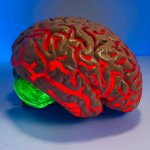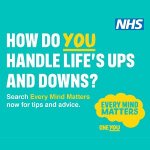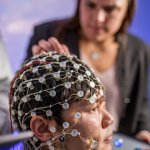
Article • Chatbots & co
E-mental health: A solution for a rising challenge
E-mental health services could provide a response to these challenges and offer effective ways for prevention, diagnosis, treatment, and aftercare.

E-mental health services could provide a response to these challenges and offer effective ways for prevention, diagnosis, treatment, and aftercare.

Two clusters of brain cells compete to promote either the persistence or disappearance of traumatic memories, according to a new study conducted in mice. The findings could provide important insights into human conditions such as post-traumatic stress disorder (PTSD), anxiety disorders, and associated problems such as alcohol use disorder (AUD) that can arise from the persistence of traumatic…

Some clinicians are concerned that post-traumatic stress disorder (PTSD) diagnosis has risen throughout Western society since the late 1980s. Is this correct? And if so, has the true incidence of PTSD really spiralled out of control, or has it simply become overdiagnosed? Experts debate the issue in The BMJ this week. PTSD is a serious and uncommon condition resulting from severe trauma, but it…

A research team from the Institut de Neurociències at the Universitat Autònoma de Barcelona (INc-UAB) has showed that inhibition through a drug of the Tac2 neuronal circuit, involved in the formation of the memory of fear, has opposite effects on the ability to remember aversive events in mice according to sex: it is reduced in male mice and increased in female mice.

Every year, millions of children around the world are admitted to hospital for having anaesthesia and surgery. Many of them experience preoperative anxiety which negatively affects both their hospital experience and medical outcome, as well as their future relationships with healthcare services from both a short-term and long-term point of view. A new, internationally aimed website offers…

A study conducted by Columbia University Mailman School of Public Health researchers reports a high global prevalence of both depression and anxiety during the Covid-19 pandemic. It also shows how the implementation of mitigation strategies including public transportation and school closures, and stay-at-home orders impacted such disorders. Results are published in Psychological Medicine.

During pandemics, protective behaviors need to be motivated by effective communication. A critical factor in understanding a population’s response to such a threat is the fear it elicits, since fear both contributes to motivating protective responses, but can also lead to panic-driven behaviors. Furthermore, lockdown measures affect well-being, making it important to identify protective factors…

A way of using machine learning to more accurately identify patients with a mix of psychotic and depressive symptoms has been developed by researchers at the University of Birmingham. Patients with depression or psychosis rarely experience symptoms of purely one or the other illness. Historically, this has meant that mental health clinicians give a diagnosis of a ‘primary’ illness, but with…

Anorexia is a debilitating eating disorder, and was long thought to be purely psychological. New research is challenging this by revealing that gut microbes may have a significant role in anorexia. A recent review examines the evidence that gut microbes can contribute to anorexia and may provide a new method to treat it.

Is my heart beating slightly fast? Is a heart attack coming? I didn’t sleep as much as I thought I had last night – is that bad for my heart? Health apps and fitness watches can shed considerable light on how our bodies work and make recommendations for a healthy lifestyle. However, self-measuring can have a downside too, according to a new study that examined the experiences of 27 heart…

Depression is a common psychiatric disorder and one of the leading causes of disability worldwide. Antidepressants are the first-line treatment for moderate to severe major depressive episodes. Despite their effectiveness, only 40% of patients respond to the first antidepressant they try. A recent paper in Nature Communication strongly suggests that a particular protein, GPR56, is involved in the…

Media reporting of suicide, especially celebrity suicides, is associated with increases in suicide in the general population, particularly by the same method as used by the celebrity, finds an analysis of the latest evidence published by The BMJ. The researchers say their findings support the continued use and promotion of guidelines on responsible media reporting of suicide, especially when…

A new multicentre study will investigate the link between brain inflammation and psychosis, and use artificial intelligence techniques to identify patients that might benefit most from novel treatments. The study, funded by UKRI Medical Research Council, is led by the Universities of Birmingham and Cambridge. Researchers will examine how and if activated inflammatory cells may act differently in…

People with multiple sclerosis (MS) who also have depression are more likely to suffer debilitating symptoms early than people with MS who are not depressed, according to a study at Karolinska Institutet in Sweden that is published in the journal Neurology. The findings highlight the need for early recognition and treatment of depressive symptoms in patients with MS. More than 2 million people…

A new awareness campaign launched by the National Health Service (NHS) aims to tackle the growing issue of mental disorders in the UK. 'Every Mind Matters' encourages adults to be more aware of their mental health and helps them to discover simple steps to look after their mental health and wellbeing. The campaign offers free, NHS-approved mental health resources, via the One You website, which…

The risk of suicide attempts and suicides among individuals with autism spectrum disorders is significantly higher than among the population in general. An especially high risk of suicidal behaviour is noted among women who in addition to autism also have ADHD. These are the findings of a population-based study from Karolinska Institutet in Sweden published in the journal Psychological Medicine.…

People who experience anxiety symptoms might be helped by taking steps to regulate the microorganisms in their gut using probiotic and non-probiotic food and supplements, suggests a review of studies published in the journal General Psychiatry. Anxiety symptoms are common in people with mental diseases and a variety of physical disorders, especially in disorders that are related to stress.…

Research from King’s College London provides the first evidence of an association between air pollution and psychotic experiences in adolescence. The study, published in JAMA Psychiatry, provides a potential explanation for why growing up in cities is a risk factor for psychosis. This is the first time researchers have linked detailed geographical air pollution data with a representative sample…

The debilitating behaviours and all-consuming thoughts which affect people with severe obsessive compulsive disorder (OCD), could be significantly improved with targeted deep brain stimulation, according to the findings of a new study. OCD is characterised by unwanted intrusive thoughts (obsessions) and repetitive stereotyped behaviours (compulsions- sometimes called rituals) and often means…

With a weak alternating electrical current sent through electrodes attached to the scalp, UNC School of Medicine researchers successfully targeted a naturally occurring electrical pattern in a specific part of the brain and markedly improved depression symptoms in about 70 percent of participants in a clinical study.

The pill could be blurring your social judgement ‒ but perhaps not enough so you'd notice. By challenging women to identify complex emotional expressions like pride or contempt, rather than basic ones like happiness or fear, scientists have revealed subtle changes in emotion recognition associated with oral contraceptive pill (OCP) use. Published in Frontiers in Neuroscience, their study found…

Were Anders Breivik’s actions the work of a madman? Is Theo van Gogh’s killer Mohammed Bouyeri a psychopath? Much is still unclear about the role of psychological disorders (psychopathology) in terrorism. While some research supports the idea that terrorists are mentally ill, other studies contradict this view. In a study commissioned by the Research and Documentation Centre/Dutch Ministry of…

Half of those who develop a severe mental disorder such as depression prior to the age 20, will also develop an anxiety disorder within the next 15 years. This is just one of the many results on the relationship between various mental disorders mapped out.

Longer hours, more demanding working practices, complex cases and increased administration are taking their toll on physicians as growing numbers, across a range of specialties, report signs of burnout. All this despite technological advances such as artificial intelligence and machine learning to aid diagnosis, read and interpret images, improve workflow and enhance decision-making.

A new study by a team of Texas State University researchers shows that negative social media behaviors are linked to major depressive disorder (MDD) in Millennials. The findings are published in the Journal of Applied Biobehavioral Research. In the study of 504 Millennials who actively use Facebook, Twitter, Instagram and/or Snapchat, individuals who met the criteria for MDD scored higher on the…